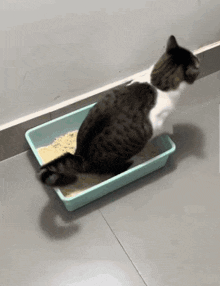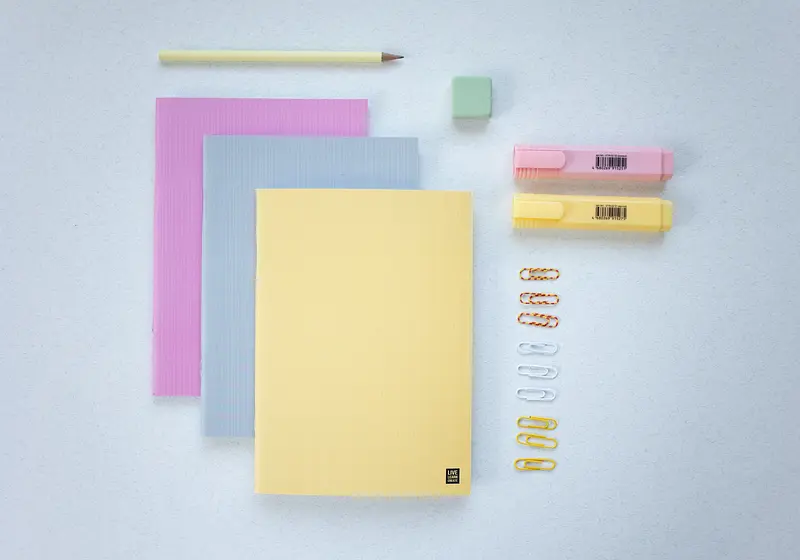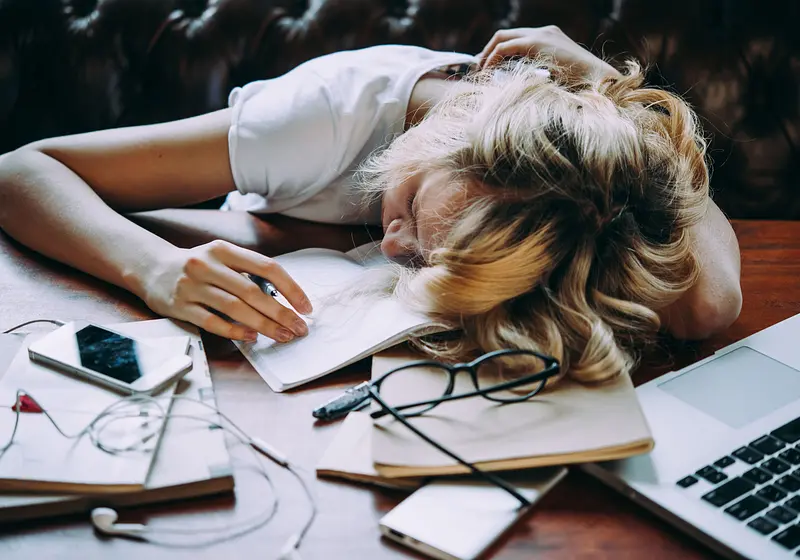The school year is well underway for many, and with that comes the stress of homework, tests, and projects. Here are 11 tips to help you feel less overwhelmed and more productive this school year!
Let us slide into your dms 🥰
Get notified of top trending articles like this one every week! (we won't spam you)1. Use a planner
Using a planner, bullet journal, notebook, online calendar, or any other organizational tool is the single most important thing you need and will be a life-saver to you this year. It will help you keep everything in one place, including your daily tasks, tests, assignments, due dates, and more. You will also not have to worry about what you have to do later since your homework is written down!

Take the Quiz: What Type of Notes Should I Take?
Discover the best note-taking method for your learning style!
2. Create a schedule
Creating a schedule for this school year is a must! Schedules help you keep track of your classes, extracurricular activities, free time, etc. From personal experience, it's a lot easier to keep track of your time and remember what you should be doing next when you have a physical or virtual copy of your schedule to look at. To create your schedule, you can simply use a blank piece of paper and color-coordinate by activity, or you can use a calendar app.
3. Make a to-do list and prioritize your tasks
Create a to-do list every morning of the three main tasks you have to get done for that day. This will help you narrow down the tasks that are absolutely necessary to finish and those that can be moved to later days. As you move on through the day and go to your different classes, make sure to add the homework assigned for each class to your to-do list, as this will help you be productive and stay on top of your work.

Own screenshot: sample to-do list on Notion
4. Take notes in class and review them every week
This point cannot be stressed enough! When your teachers are giving lessons, it is absolutely necessary to take notes because it forces you to pay attention to what is being said. Even though your teachers may provide documents or Slide/PowerPoint presentations, it is important to take your own notes because this will help you remember the material more easily. At the end of the week, on Friday afternoon, for example, review all of your notes to make sure you have not forgotten the material.
You can take notes in a notebook, on your laptop (in a blank document or on a program like Notion, for example), or on lined binder paper (this will decrease the amount of paper you are carrying in your backpack.)
While taking notes, make sure you color-code them with different pens or high-lighters by title, sub-title, notes, definitions, important information, additional information, examples, etc., because this will help you find information more easily and keep your notes more organized.
5. Label and store your notes
If you are taking notes in a notebook, I recommend putting your notebook in a binder or folder along with the hand-outs your teacher gives you. However, it's a good idea to leave all of your binders at home so that you are not carrying too much on your back (you can take your notebooks to school and store your teachers' handouts in an accordion folder).
If you are taking notes on your laptop, make sure to organize each document in folders by subject and by topic. This will help you find your documents more easily later on.
If you take your notes on loose-leaf paper, you can use an accordion folder and organize each tab by subject.
Assigning a different color for each subject and labeling your folders, notebooks, or binders will also help you find your notes more easily. For example, math notes go in a blue folder, science notes go in a green folder, geography notes go in a purple folder, etc. Pro-tip: Include your name, phone number/e-mail, and homeroom number so that if you ever lose your binder or folder, someone will be able to easily contact you.
6. Keep your desk organized
Your desk space reflects how you think. Use a desk organizer and pencil holders to organize all the supplies on your desk and a desk lamp while you work at night. You can keep a calendar in front of your desk (I like to use a dry-erase calendar) to remind you of important dates, events, and assignments.
You can also use decorations to motivate you to sit down at your desk and study. Some examples are small plants, art or poster prints, little figurines, a globe, pictures of you and your friends, a mood board, etc.
- Here is a quick video featuring Marie Kondo about how to keep your desk organized.
7. Store your supplies in a pencil case
This may be obvious, but storing your school supplies in a pencil case will help you find what you need quickly. Include things like pencils, pens, an eraser or Wite-Out, a ruler, highlighters or markers, a glue stick or tape, a pair of scissors, sticky notes, book tabs, note cards, or Q-Cards, and paper clips.
8. Set your own deadlines and break down tasks into smaller ones
If you have the habit of finishing assignments until the last minute, you should try this tip. By setting your own deadlines at least two days before the assignment is due, you are reducing unnecessary stress.
You will also stay more organized by breaking down your tasks into smaller ones. Writing an essay, for example, may seem like a lot to think about all at once. However, by separating this task into smaller tasks like “pick the essay topic,” “read about the topic,” and “write your thesis statement,” and setting individual deadlines for each one, you are making this task much more manageable to finish. This will also help you save time.
9. Start studying for tests and quizzes early
When you start studying early, you retain information more easily. Review your notes, make questions based on the information you find hardest to remember, and do practice quizzes. I have found this method very helpful especially with subjects like science, geography, and history where you have to remember specific information like definitions, terms, equations, and dates. By starting your study sessions early (e.g. one to two weeks in advance), you will also have time to figure out where you need the most improvement and therefore be able to ask your teachers relevant questions.
10. Make use of online resources and apps
There are plenty of resources out there to help you boost your productivity and organization. Some examples include:
- Notion, which is often used as an online planner and organizer, can also be used to take class notes. You can use it to keep track of your assignments, grades, tasks, extracurricular activities, books you've read or want to read, and so much more. I like to use the study template from studywithara.ca, but you can also use other templates such as Jazmine Layah's homepage template or you can make one from scratch.
- Quizlet is a cue-card app you can use to review and study for your next test. You can use already-made study sets, or you can create your own! This is a perfect tool if you don't like using paper note cards and want to review some questions on the go.
- Life At and I Miss My Cafe are websites with sounds and videos to study to. Life At includes many backgrounds you can look at while studying including beaches, cafés, and cityscapes, and special features (like a study timer and to-do list maker) when you sign up for free. Sounds include classical music, nature sounds, and many more. I Miss My Café, as you've probably guessed, includes sounds associated with coffee shops including people talking, glasses clinking, baristas preparing coffee... you can also adjust the volume of each sound, and play the pre-made Spotify playlist on the website.
- Evernote is a note-taking app whose features include note-taking, calendar integration, tasks, PDF annotation, etc.
- Canva is a design app and website that can help you make beautiful presentations, infographics, and posters for school. There are also numerous templates which can help you plan your day, week or month (e.g. a weekly spread that you can customize and use to keep track of the week's most important events or to-do list.)
- Finally, Google Drive is the perfect home base to create documents, spreadsheets, slide presentations, and more. You can also use Google Calendar to plan all of your assignments and meetings.
11. Practice self-care
From doing what you love to taking a nap, or journaling, or listening to some music, self-care is an often overlooked aspect of keeping yourself healthy and your mind uncluttered. If you are feeling stressed out, doing a simple activity like breathing exercises, meditation, physical exercise, or journaling can help you feel less overwhelmed. Take a walk in between study sessions, because this is a form of exercise, and being in nature can help you stay calm and clear your head.

Photo by cottonbro from Pexels
There are so many organizational hacks and tips out there, and the ones that were chosen above were just some tips you can use. In the end, if you are feeling unproductive (which is totally fine because some days a break, a walk, or a nap is all you need!) remember that you have to get up eventually and complete your goal because no one else is going to do it for you.











.jpeg)






